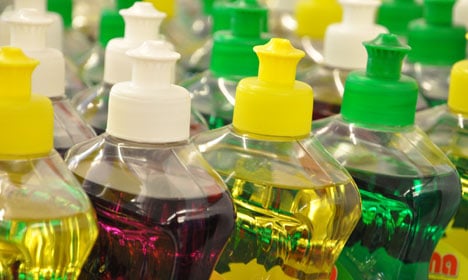ENVIRONMENT
Denmark pressures EU on everyday chemicals
Saying that "the phasing-out of harmful chemicals is progressing far too slow in the EU," Denmark's environment minister has recruited colleagues for a coordinated campaign targeting the EU Commission.
Published: 19 November 2014 16:43 CET

Photo: Onderwijsgek/WikiCommons
Denmark’s environment minister, Kirsten Brosbøl, has joined with seven other European ministers to pressure the new EU Commission to increase its efforts to protect consumers from dangerous chemicals.
Brosbøl and the environment ministers of Austria, Belgium, France, the Netherlands, Germany and Sweden are calling on the new members of the EU Commission to eliminate chemicals from everyday products.
"Denmark holds an unfortunate record with regard to testicular cancer, and many couples are having difficulties getting pregnant, while children are reaching puberty at an ever earlier age. We know that this may be due to a number of harmful chemicals in our everyday lives,” Brosbøl said in a press release.
See also: Danish supermarket drops fabric softener
“My objective is to ensure that Danes, and Europeans in general, can live their daily lives free of harmful chemicals. Therefore, I have brought together a number of like-minded European environment ministers, and we have written to the new European Commission encouraging it to step up the work on the EU's chemicals policy," she added.
The ministers are calling on the EU to act in five specific areas: minimising consumer exposure to endocrine-disrupting chemicals, increased controls on nanomaterials, tougher regulations on imports from non-EU countries, the phasing out of products that are known to create side effects and tougher rules forcing the chemical industry to inform consumers about risks.
"The industry is responsible for ensuring that their products are safe to use. But they don't have adequate knowledge about how dangerous their chemicals are. In the end, this means that consumers risk being exposed to harmful chemicals. We have to get this right," Brosbøl said.
Url copied to clipboard!


 Please whitelist us to continue reading.
Please whitelist us to continue reading.
Member comments